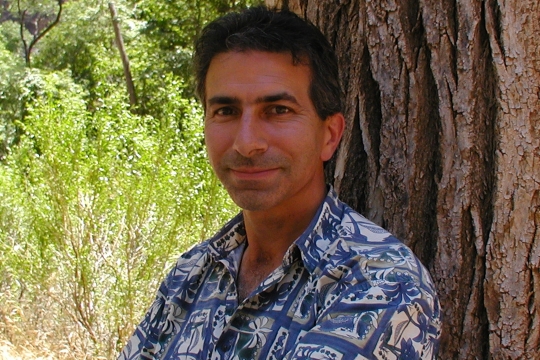”I love teaching. It is the best part of my job,” says Peter Parks, professor at Rutgers University, New Jersey, USA, and an EfD Research Associate. 2008 is the tenth year he has been asked to come to teach in Natural Resource Economics at the University of Gothenburg. Students from 17 countries are attending his course.
Peter Parks is widely acclaimed as a professor in Gothenburg. His students give him the very best grades, year after year. He is lecturing in one of the courses within the PhD program in environmental economics that are also open to outside participation. Some of the participants are former students from the Sida financed program at the Environmental Economics Unit, School of Business, Economics and Law. Others, coming from universities all over the world, want to develop their ideas more fully in their PhD studies. Several are involved in projects of the Environment for Development initiative (www.efdinitiative.org) in their home countries.
Why did you choose to come all the way to Sweden to teach for the tenth year?
”I certainly enjoy teaching. I enjoy explaining perspectives to students who can then see, perhaps, challenges in their lives more clearly and be better able to develop solutions in their professional settings. This program offers opportunities to improve the research and the teaching skills of students who can immediately benefit from that improvement. It brings together students from many countries and that gives me the opportunity to help many people at the same time.”
What is the Natural Resource Economics course about?
”This course is one of the series of courses that explain and explore the relationship between human society and the natural world. It examines this relationship and how it develops over time. It explores how to make sure not only that the value of the natural world is conserved, but also that nature is providing the necessary benefits to societies that depend on the natural world. It involves how to deduce economic values where those are not manifested in markets.”
What is different about this course compared to others of its kind?
”This course, being associated with the EEU, is associated with one of the leading institutions in the world to examine the relationship between environment and economic development. In addition it brings together students who are ideally qualified to offer their experiences in class discussions and to take the benefits of their learning to their home countries to create and maintain improved economic policies as they relate to the natural world and the environment.”
Why are you involved in environmental economics?
”My father was a professor in natural science at Stanford, so my sister and I grew up in an academic home, in a family that loved getting out in nature. My skills are in seeing solutions that others might miss, and in explaining complicated processes in plain language to students and people of many different backgrounds. I love life as a professor. It’s a nice life with little stress.”
By Karin Backteman
